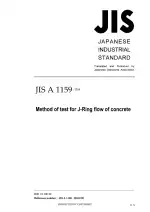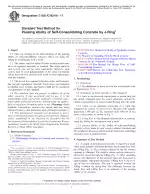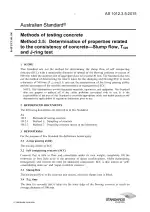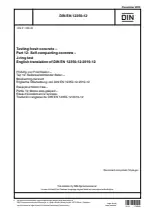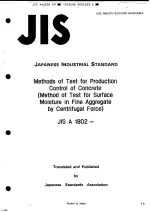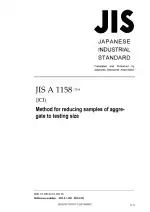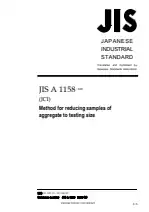JIS A 1159:2018 PDF Download
Standard EN SampleMethod of Test for J-Ring Flow of Concrete
Also Known As:
The JIS A 1159:2018 standard outlines the test procedure for determining the flow characteristics of high-fluidity concrete with a maximum coarse aggregate size of 40 mm or less. The J-ring flow test is commonly used to evaluate the passing ability of self-consolidating concrete (SCC) and assess its ability to flow through tight spaces and around congested reinforcement.
The standard provides guidelines on how to conduct the J-ring flow test, which involves placing a specially designed J-ring on a flat surface and filling it with SCC. The concrete is then allowed to flow and spread freely outside the J-ring. The J-ring acts as a barrier, simulating real-life construction scenarios where concrete needs to flow through small openings or around obstacles. The distance the concrete spreads outside the J-ring is measured and recorded as the J-ring flow value.
By following the procedures outlined in JIS A 1159:2018, professionals in the construction industry can assess the workability and flowability of high-fluidity SCC. The results obtained from the J-ring flow test can help engineers and contractors determine the suitability of SCC for specific applications, such as casting in heavily reinforced structures or in areas with restricted access. This standard serves as a valuable reference for quality control and assurance in concrete production and construction projects in Japan.
| ICS Codes | 91.100.30 - Concrete and concrete products |
| Language(s) | English |
| File Size | 389.1 KB |

